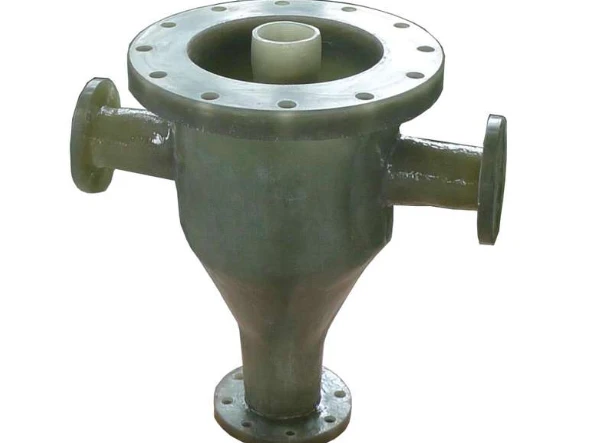
-
 Afrikaans
Afrikaans -
 Albanian
Albanian -
 Amharic
Amharic -
 Arabic
Arabic -
 Armenian
Armenian -
 Azerbaijani
Azerbaijani -
 Basque
Basque -
 Belarusian
Belarusian -
 Bengali
Bengali -
 Bosnian
Bosnian -
 Bulgarian
Bulgarian -
 Catalan
Catalan -
 Cebuano
Cebuano -
 China
China -
 China (Taiwan)
China (Taiwan) -
 Corsican
Corsican -
 Croatian
Croatian -
 Czech
Czech -
 Danish
Danish -
 Dutch
Dutch -
 English
English -
 Esperanto
Esperanto -
 Estonian
Estonian -
 Finnish
Finnish -
 French
French -
 Frisian
Frisian -
 Galician
Galician -
 Georgian
Georgian -
 German
German -
 Greek
Greek -
 Gujarati
Gujarati -
 Haitian Creole
Haitian Creole -
 hausa
hausa -
 hawaiian
hawaiian -
 Hebrew
Hebrew -
 Hindi
Hindi -
 Miao
Miao -
 Hungarian
Hungarian -
 Icelandic
Icelandic -
 igbo
igbo -
 Indonesian
Indonesian -
 irish
irish -
 Italian
Italian -
 Japanese
Japanese -
 Javanese
Javanese -
 Kannada
Kannada -
 kazakh
kazakh -
 Khmer
Khmer -
 Rwandese
Rwandese -
 Korean
Korean -
 Kurdish
Kurdish -
 Kyrgyz
Kyrgyz -
 Lao
Lao -
 Latin
Latin -
 Latvian
Latvian -
 Lithuanian
Lithuanian -
 Luxembourgish
Luxembourgish -
 Macedonian
Macedonian -
 Malgashi
Malgashi -
 Malay
Malay -
 Malayalam
Malayalam -
 Maltese
Maltese -
 Maori
Maori -
 Marathi
Marathi -
 Mongolian
Mongolian -
 Myanmar
Myanmar -
 Nepali
Nepali -
 Norwegian
Norwegian -
 Norwegian
Norwegian -
 Occitan
Occitan -
 Pashto
Pashto -
 Persian
Persian -
 Polish
Polish -
 Portuguese
Portuguese -
 Punjabi
Punjabi -
 Romanian
Romanian -
 Russian
Russian -
 Samoan
Samoan -
 Scottish Gaelic
Scottish Gaelic -
 Serbian
Serbian -
 Sesotho
Sesotho -
 Shona
Shona -
 Sindhi
Sindhi -
 Sinhala
Sinhala -
 Slovak
Slovak -
 Slovenian
Slovenian -
 Somali
Somali -
 Spanish
Spanish -
 Sundanese
Sundanese -
 Swahili
Swahili -
 Swedish
Swedish -
 Tagalog
Tagalog -
 Tajik
Tajik -
 Tamil
Tamil -
 Tatar
Tatar -
 Telugu
Telugu -
 Thai
Thai -
 Turkish
Turkish -
 Turkmen
Turkmen -
 Ukrainian
Ukrainian -
 Urdu
Urdu -
 Uighur
Uighur -
 Uzbek
Uzbek -
 Vietnamese
Vietnamese -
 Welsh
Welsh -
 Bantu
Bantu -
 Yiddish
Yiddish -
 Yoruba
Yoruba -
 Zulu
Zulu
Jan . 20, 2025 07:24
Back to list
fiberglass pipe insulation fittings
Fiberglass pipe insulation fittings are vital components in various industrial and commercial applications, particularly in maintaining energy efficiency and protecting piping systems from harsh environmental factors. These fittings consist of fiberglass, a highly effective insulation material known for its thermal resistance, durability, and safety. Understanding the benefits and applications of fiberglass pipe insulation fittings can significantly enhance the efficiency and lifespan of any piping system.
To present an authentic experience of how these fittings perform in real-world applications, consider a case study of a chemical processing plant that integrated fiberglass pipe insulation fittings. The plant, previously grappling with high energy consumption and frequent insulation failures, witnessed a 30% reduction in energy use after switching to fiberglass fittings. Not only did these fittings withstand the harsh chemical environment without deterioration, but they also improved the workplace's safety profile by mitigating the risks associated with thermal radiation and pipe surface temperatures. Expertise in the selection and installation of fiberglass pipe insulation fittings is crucial to maximizing their benefits. Professionals in the field recommend assessing the specific environmental conditions and operational demands of the application before selecting the type and thickness of fiberglass insulation. Factors such as operating temperature, exposure to moisture, and installation challenges should guide the selection process. For authoritative insights, numerous studies and industry reports validate the effectiveness of fiberglass in piping insulation. Organizations and researchers consistently highlight the material's high performance in thermal resistance, cost-effectiveness over time, and safety merits. Professionals leveraging such data can ensure the optimal choice of materials for both current and future insulation projects. Trustworthiness is built through the assurance and compliance with industry standards in manufacturing and installing fiberglass pipe insulation fittings. Reputable manufacturers adhere to international regulations and standards, ensuring that their products not only meet but often exceed performance expectations. This adherence instills confidence in the end-users and stakeholders regarding the reliability and safety of the insulation solutions provided. In conclusion, fiberglass pipe insulation fittings are a cornerstone of efficient, safe, and durable piping systems. Their unique properties of thermal resistance, durability, and safety, combined with the versatility of application and long-term economic benefits, make them indispensable in various industries. By emphasizing energy efficiency, compliance with safety standards, and leveraging expert recommendations, stakeholders can optimize their piping systems for enhanced performance and sustainability.


To present an authentic experience of how these fittings perform in real-world applications, consider a case study of a chemical processing plant that integrated fiberglass pipe insulation fittings. The plant, previously grappling with high energy consumption and frequent insulation failures, witnessed a 30% reduction in energy use after switching to fiberglass fittings. Not only did these fittings withstand the harsh chemical environment without deterioration, but they also improved the workplace's safety profile by mitigating the risks associated with thermal radiation and pipe surface temperatures. Expertise in the selection and installation of fiberglass pipe insulation fittings is crucial to maximizing their benefits. Professionals in the field recommend assessing the specific environmental conditions and operational demands of the application before selecting the type and thickness of fiberglass insulation. Factors such as operating temperature, exposure to moisture, and installation challenges should guide the selection process. For authoritative insights, numerous studies and industry reports validate the effectiveness of fiberglass in piping insulation. Organizations and researchers consistently highlight the material's high performance in thermal resistance, cost-effectiveness over time, and safety merits. Professionals leveraging such data can ensure the optimal choice of materials for both current and future insulation projects. Trustworthiness is built through the assurance and compliance with industry standards in manufacturing and installing fiberglass pipe insulation fittings. Reputable manufacturers adhere to international regulations and standards, ensuring that their products not only meet but often exceed performance expectations. This adherence instills confidence in the end-users and stakeholders regarding the reliability and safety of the insulation solutions provided. In conclusion, fiberglass pipe insulation fittings are a cornerstone of efficient, safe, and durable piping systems. Their unique properties of thermal resistance, durability, and safety, combined with the versatility of application and long-term economic benefits, make them indispensable in various industries. By emphasizing energy efficiency, compliance with safety standards, and leveraging expert recommendations, stakeholders can optimize their piping systems for enhanced performance and sustainability.
Related Products
Latest news
-
Exploring the Benefits of Top Hammer Drifter Rods for Enhanced Drilling PerformanceNewsJun.10,2025
-
High-Precision Fiberglass Winding Machine for GRP/FRP Pipe Production – Reliable & Efficient SolutionsNewsJun.10,2025
-
FRP Pipes & Fittings for Shipbuilding - Corrosion-Resistant & LightweightNewsJun.09,2025
-
Premium FRP Flooring Solutions Durable & Slip-ResistantNewsJun.09,2025
-
Premium Fiberglass Rectangular Tanks Durable & Lightweight SolutionNewsJun.09,2025
-
Tapered Drill String Design Guide Durable Performance & UsesNewsJun.09,2025









